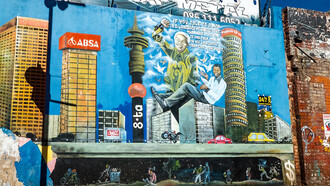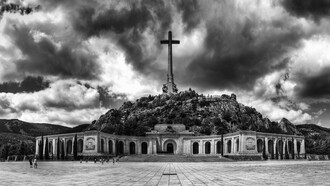The climate crisis is the most daunting challenge ever confronted by humankind. At the present time, mankind is losing the battle. This article explores the first of three dimensions of our inept response; cognition. As a point of full disclosure, I am a climate crisis believer; one who remains deeply concerned about the current state of efforts of every type to deliver elements of a comprehensive solution… in time.
Cognition
The processes of knowing are referred to as cognition. Among other processes, thinking produces bodies of shared knowledge; pools of knowledge that represent what we think we know and = what we don’t know. Knowledge is defined as an awareness of, or familiarity with, various objects, events, ideas, or ways of doing things. Knowledge guides our thinking (both positively and negatively) in terms of how we approach developing solutions to problems.
Rarely in history has so much questionable information been so confidently offered. Forecasts are, in fact, inherently unreliable. Were they otherwise, those responsible for them would never give them to the public.
(John Kenneth Galbraith, A History of Economics. The Past as the Present, 1987, p. 263)
The quote above from Galbraith is as pertinent to the current status of the climate crisis challenge as it is to any other field of human endeavor. We are gambling with climate change. Are we doing our best regarding questionable information that has been so confidently offered? Information that is inherently unreliable?
Some forty-plus years ago, Nobel Prize winning Israeli psychologists Daniel Kahneman and Amos Tversky authored a series of unique studies rearranging our assumptions and understanding about the human decision-making process. Their studies revealed the ways in which the human mind systematically erred when required to make judgments about uncertain situations. In his book, The Undoing Project – A Friendship that Changed Our Minds (2017), bestselling author Michael Lewis recounts the relationship between the two and the paradigm shifting results of their work. As their work relates to the cognition challenge inherent in approaches to resolving the climate crisis, Lewis offers (in another context) several insights that are uniquely pertinent here:
A new definition of the nerd: a person who knows his own mind well enough to mistrust it. …Maybe the mind’s best trick of all was to lead its owner to feel certainty about inherently uncertain things.
Is mistrust regarding the way we think a strategic imperative in our ongoing deliberations? Will the climate crisis be man’s most prideful triumph? Are we certain?
Certainty
How about you? Are you basking in a sea of certainty about the pace, elements and trajectory of human efforts to resolve the climate crisis? Why? How do you know? Is there a downfall to the notion of certainty of your beliefs and understanding? Let’s continue. How do humans become certain about inherently uncertain things? Why does it matter?
The human brain has been referred to as a "belief machine." The human mind seeks the pleasant sensations that arise from certainty, familiarity, relationships, and identifying patterns; guides to how we think and reason.
Despite how certainty feels, it is neither a conscious choice nor even a thought process. Certainty and similar states of “knowing what we know” are sensations that feel like thoughts, but arise out of involuntary brain mechanisms that function independently of reason. Certainty is not biologically possible. We must learn (and teach our children) to tolerate the unpleasantness of uncertainty. …The feelings of knowing, correctness, conviction, and certainty aren’t deliberate conclusions and conscious choices. They are mental sensations that happen to us. …One of the overriding fears of our time is that excesses of belief may destroy civilizations. …That unmistakable sense of certainty arises out of involuntary brain mechanisms that, like love or anger, function independently of reason.
(Neurologist Robert A. Merton MD, Being Certain: Believing You Are Right Even When You're Not, 2010)
Huh? What? Wait a minute! Are you telling us that we should not trust what we think we know? You mean the climate crisis gamble involves human beliefs that might destroy human civilization? What are the odds? What are the probabilities for specific outcomes to occur in the future? Perhaps what is being suggested is that what we think we know is knowmentary (my term).
Knowmentary
Oftentimes, words serve to change the tenor of both our thinking, our dialog, and our behaviors. Sometimes words change the way we perceive world, self and others. The best one’s change our behavior for the better. We overlook the fact that humans create language – and that the process of creating language is ongoing. It’s our privilege and responsibility. Enter “Knowmentary.”
If the history of human civilization demonstrates anything – it is the fact that what we think we know is momentary. It’s temporary. It is “Knowmentary.” Knowledge, beliefs, values, attitudes, perceptions, observation, mores, memes and norms are all perishable (thank heaven!). Even emotions appear and disappear in terms of their actual behavioral expressions in the daily lives of humans. The degree to which we think we know: terms like certainty, truth, love, affection, rejection, doubt, fear, joy and confusion also ebb and flow as emotional states, expressed every day in human existence.
As the above relates to the cognition crisis pertinent to climate change, consider the following tidbits from MIT’s Andrew W. Lo:
Just as the human eye is susceptible to optical illusions, the human brain is susceptible to illusions about risk and probability. …We know that we are highly susceptible to contagion, false beliefs, and neuroses — especially medical and psychological — and conspiracy theories.
(Andrew W. Lo, Adaptive Markets: Financial Evolution at the Speed of Thought, 2017)
Wonderful! You mean to tell us that we can be wrong about our current, multi-faceted efforts to successfully address the climate crisis? Huh? It’s going to take an ocean of capital, creativity, and a whole new form of collaboration to effectively address the challenge. Yet, can we rely upon capitalism to provide the essential resources? Scott A. Sandage is Associate Professor of History at Carnegie Mellon University. In his 2005 book, Born Losers. A History of Failure in America, he concludes:
However unsightly, failure pervades the cultural history of capitalism. …Failure disrupts our stories. Life’s journey stalls, maybe for now, maybe forever.
Needless to say, there is no opportunity for failure regarding this unique and strategically imperative challenge to human existence on this planet. Are we challenging our current assumptions whereby the term assumptions might be characterized as beliefs and knowledge that are “accepted as true or as certain to happen, without proof?” Do we really know when the tipping point for climate change will evidence itself? (tipping point, "that magic moment when an idea, trend, threat, or social behavior crosses a threshold, tips, and spreads like wildfire" (Gladwell, 2000).
And everywhere people are beginning to ask a question never before entertained in history: Can we continue to sustain our species? We are in a race to biosphere consciousness in a world facing the threat of extinction. Understanding the contradiction that lies at the heart of the human saga is critical if our species is to renegotiate a sustainable relationship to the planet in time to step back from the abyss.
(Jeremy Rifkin, The Empathic Civilization – The Race to Global Consciousness in a World in Crisis, 2009 pp. 25-26)
Conclusion: the omegabet
So what’s the truth about the human cognition crisis that is relevant to the climate challenge? Well, it depends upon the definition of the word.
The word “truth” is heavily laden with difficult philosophical baggage, but as a shorthand we can take it colloquially to mean knowing the right answer, or knowing what really happened in some situation, or knowing the best course of action, or the best solution to a problem.
(Mark Pagel, Wired for Culture – Origins of the Human Social Mind, 2012, p. 334)
“Right answer? Best course of action? Best solution? Are we certain that our current efforts are truly accurate – that they will be effective? Are our current approaches inhabited and influenced by assumptions, beliefs, certainty, illusions about risk and probability, a financial system that is focused on short term profits vs. the survival of our species? What about the possibility that we are experiencing a feeling of certainty about inherently uncertain things. Is our current characterization of the climate crisis “the truth?” Are we challenging the way we currently think about the climate change crisis? Can we renegotiate a sustainable relationship to the planet in time to step back from the abyss?
From the standpoint of cognition, is what we think we know about the climate crisis knowmentary? Will the future reveal that what we currently understand was accurate or misguided? Is our thinking, research and development of strategic, systemic solutions informed by the fact that the human brain is susceptible to illusions about risk and probability In this section, we have drawn from the fields of psychology, economics, history, social psychology, neurology, neuroscience, etc. Is a multi-disciplinary approach to addressing climate change required? Is a certain degree of skepticism an essential ingredient for the development of effective solutions?
Climate change is the omegabet for humanity. At present, there is a tremendous amount of wagering going on within the global community about what the next form of climate change cognition will look like. It’s a huge gamble. The stakes are enormous. Never before has life on Earth been threatened to the extent it is now. This is our omegabet…betting on an unpredictable outcome when the rules of the roll have yet to play out. How we think about our ongoing efforts to address this challenge is imperative.
Thinking precedes (or should) and informs human behavior. What we currently understand about how we think, know, and wonder is an indispensable element of the climate cognition crisis. Yet, there are two additional dimensions of the climate challenge that deserve attention; collaboration and creativity. These topics will be the primary focus of my next two articles.
Think about it. As Rifkin asks: Can we continue to sustain our species? Perhaps it’s time to embrace knowmentary. The bets have been placed. Humanity has a pair of dice in its hands. What are the odds? What are the risks and probabilities? How will we fare? It’s life or death. It’s the Omegabet; the last, the final, or the ultimate wager humanity has ever confronted. Think about it.














